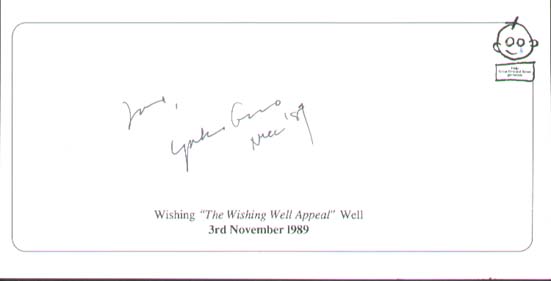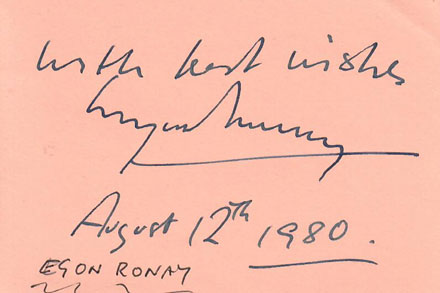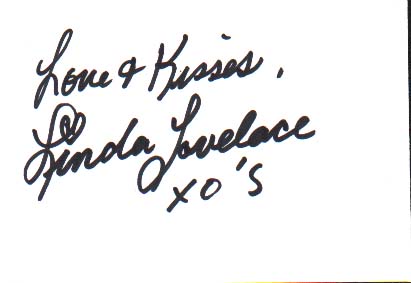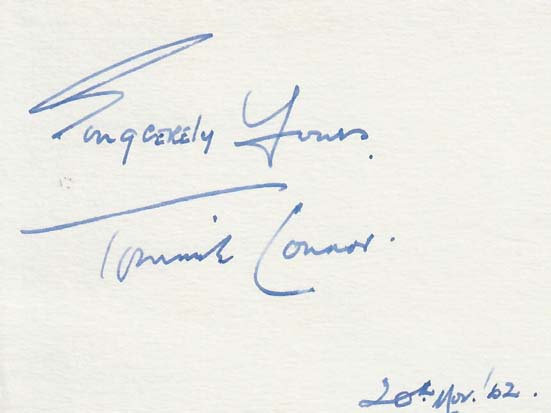Edward Dunlop
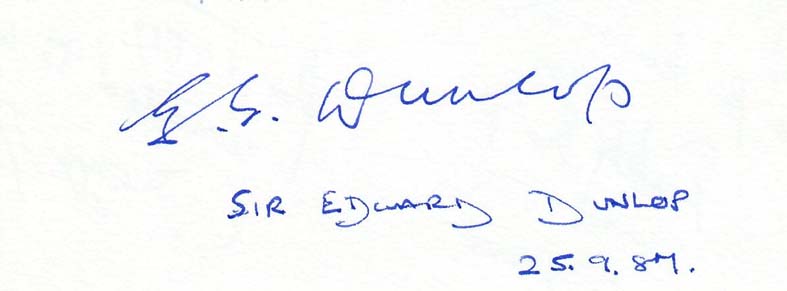
Edward Dunlop
COLONEL SIR ERNEST EDWARD WEARY DUNLOP OBE d1993. Australian surgeon and 1930s Wallabies Rugby International. In 1941, he was appointed to medical headquarters in the Middle East, where he developed the mobile surgical unit. In Greece he liaised with forward medical units and Allied headquarters and at Tobruk he was a surgeon until the Australian Divisions were withdrawn for home defence. His troopship was diverted to Java in an ill-planned attempt to bolster the defences there. On 26th February 1942, he was promoted to temporary lieutenant-colonel. He became a Japanese prisoner of war in 1942 when he was captured in Bandung, together with the hospital he was commanding. Because of his leadership skills, he was placed in charge of the prisoner of war camps in Java and was later transferred briefly to Changi. In January 1943, he commanded the first Australians sent to work on the Thai segment of the Burma-Thailand railway where prisoners of the Japanese were being used as forced labourers to construct a strategically important supply route between Bangkok and Rangoon. Conditions in these railway camps were primitive and horrific. Food was totally inadequate, beatings were frequent and severe, there were no medical supplies, tropical diseases were rampant and the Japanese required a level of productivity that would have been difficult for fully fit and properly equipped men to achieve. Along with a number of other Commonwealth Medical Officers, Dunlop's dedication and heroism became a legend among prisoners. A courageous leader and compassionate doctor, he restored morale in those terrible prison camps and jungle hospitals. He defied his captors, gave hope to the sick and eased the anguish of the dying. He became in the words of one of his men ; "a lighthouse of sanity in a universe of madness and suffering". His example was one of the reasons why Australian survival rates were the highest. After 1945, with the darkness of the war years behind him, he forgave his captors and turned his energies to the task of healing and building. He was to state later that " in suffering we are all equal". He devoted himself to the health and welfare of former prisoners-of-war and their families and worked to promote better relations between Australia and Asia. He was active in many spheres of endeavour. He became closely involved with a wide range of health and educational organisations and served as President of the Australian Drug Foundation for 13 years. He died in Melbourne aged 85 on July 2nd 1993.
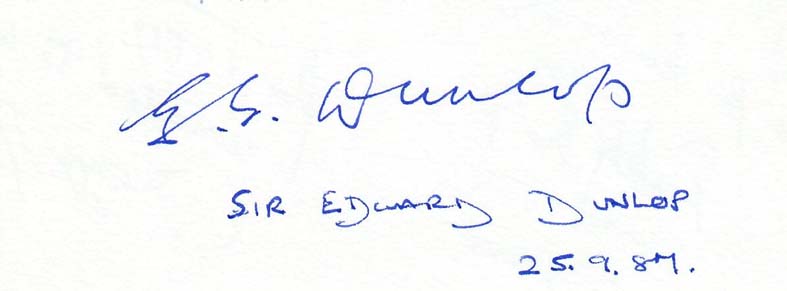
Sir Edward Dunlop
Reference Number. 9587
An original 1987 BBC TV Terry Wogan Show visitors book page, clearly signed in ink by Sir Edward Dunlop.
View more information